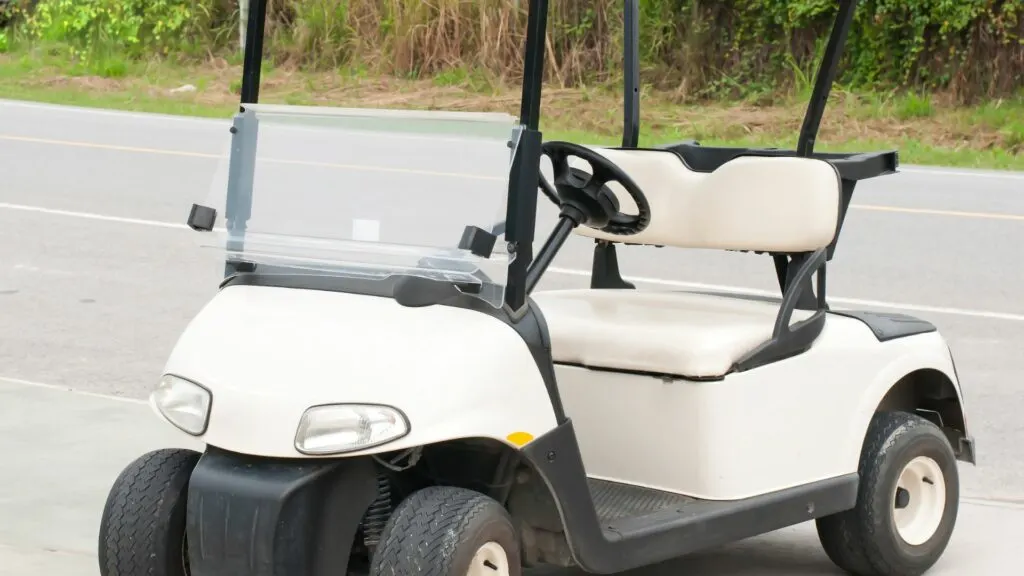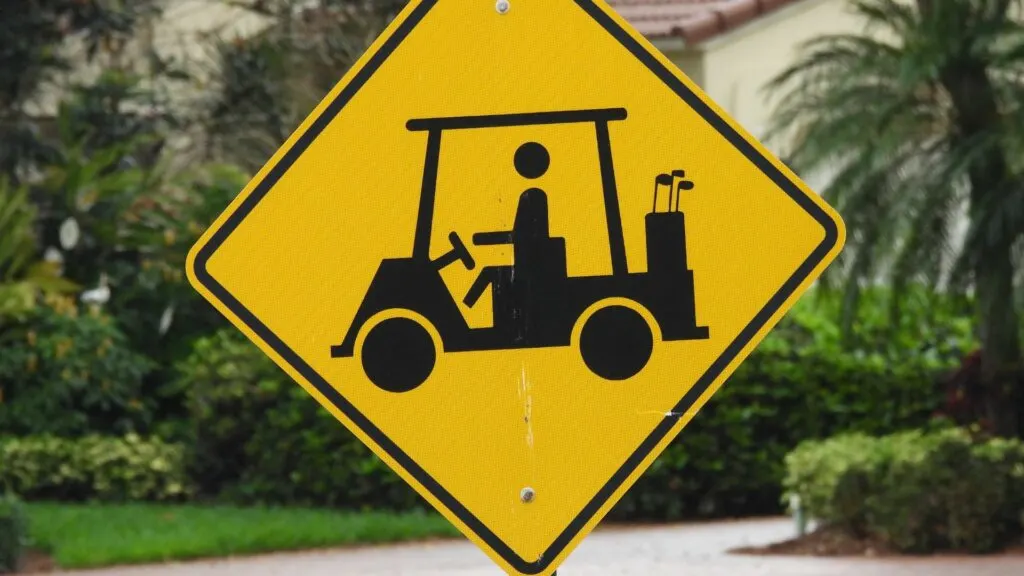Ever wondered if you could legally cruise around your neighborhood in a golf cart or maybe take a scenic ride along Florida’s beautiful coastal roads?

As golf carts become increasingly popular for more than just tee times, knowing where you can (and can’t) drive them is essential. From relaxed retirement communities to bustling tourist spots, golf carts are becoming a staple for convenient, eco-friendly transport.
But before you hop behind the wheel, it’s crucial to understand Florida’s specific laws regarding where golf carts are allowed.
So, where exactly can you drive a golf cart in Florida, and what rules must you follow?
In this guide, we’ll walk through the must-know regulations, the difference between golf carts and low-speed vehicles (LSVs), and how local ordinances play a big role in determining your cart’s legal road access.
What Is Considered a Golf Cart in Florida?
Before discussing where one is allowed to drive a golf cart, it is necessary to understand the difference between a golf cart and a low-speed vehicle.
According to Florida law, a golf cart is a vehicle that is specially built, manufactured and intended to be used on a golf course for sporting or recreation and which cannot reach speeds higher than 20 miles per hour. A perfect example of such carts is Kandi America golf carts Florida. These carts feature AC electric motors and have powerful 150Ah Lithium batteries. Its maximum speed is 25 MPH.
However, an LSV has a speed ranging from 20/25 mph and can be used on certain roads with some preconditions.

Licensing and Registration
An important fact amongst the Florida golf cart laws is that these carts do not need to be driven by individuals with a driver’s license. However, they can only be driven by people who are at least 14 years old.
Unlike conventional motor cars or low-speed vehicles, golf carts are not required to be registered or titled in the state of Florida. As for LSVs, the rules are more severe.
Such vehicles should be licensed for use, properly registered and insured, and should be fitted with essentials like headlights, reversing lights, seat belts, and turn indicators. LSVs are considered motor vehicles and must, therefore, conform to all laws relating to motor vehicles in the state.
Where Can You Drive a Golf Cart in Florida?
The question that most people ask is, what areas am I legally allowed to drive my golf cart in Florida? There is no definite answer, but there are principles that depend on the local regulations, the kind of road, and the permitted speed of the road concerned.

1. Private Communities and Neighborhoods
Most gated communities, especially those that have been developed around golf courses, permit the usage of golf carts on the roads in the estates. These communities are built with the vision of specific access by golf carts with avenues or alleys.
However, this privilege is under the regulation of the homeowner’s association of the community in which the unit is situated or the government regulation. Therefore, it is always wise to consult the rules governing a particular neighborhood to avoid violation.
2. Roads with Speed Limits of 30 MPH or Less
In Florida, a golf cart is legally permitted to be driven on public roads with a posted speed limit of 30 miles per hour and below. However, this is only lawful if the local government has issued an ordinance permitting this.
In most of the roads and highways, golf carts are not allowed to overtake intersections where the speed limit of the crossroad is over 45 miles per hour. Hence, while going through the different regions, make sure to understand the rules of golf carts.
3. Golf Cart Designated Areas
Some parts of Florida are famous for being ‘golf cart friendly.’
For instance, The Villages—a large facility for retirees—boasts of the infamous golf cart culture. Residents utilize their carts to travel within the extensive residence, to shopping centers, and even to doctors.
Other towns, such as Key West and Anna Maria Island, also have provisions and may have conditions for the use of golf carts.
4. Crossing Public Roads
Sometimes, even though golf carts are prohibited on a certain public road, you may be allowed to drive across it.
That said, state law permits the operation of golf carts on public roads provided that the cart is crossing to continue a golf course or when a marked golf cart path is crossing the street.
Normally, there are signs to show where crossing is permissible.
5. Local Ordinances
Local governments have a lot of discretion when it comes to governing the operation of golf carts.
Numerous municipalities have enacted ordinances to either permit or prohibit the operation of golf carts on public roads.
For this reason, you should look up your local government website or contact your city hall to determine the particular rules regarding the usage of golf carts in your jurisdiction.
Staying Safe and Legal with Your Golf Cart
Golf carts can provide a useful means of transportation in Florida, especially in areas such as golf centers or resort areas.
However, you need to be informed of the legal requirements pertaining to driving, such as driving safely and legally in the state.
By understanding Florida laws regarding the operation of golf carts and local regulations on their utilization, you can freely use a golf cart in various areas with a lot of conveniences while considering the safety of other road users.

Jessi is the creative mind behind The Coffee Mom, a popular blog that combines parenting advice, travel tips, and a love for all things Disney. As a trusted Disney influencer and passionate storyteller, Jessi’s authentic insights and relatable content resonate with readers worldwide.

Top 10 Family-Friendly Things To Do in Key West - The Florida Mom
Saturday 12th of April 2025
[…] remember to follow local safety rules and check up on Florida golf cart laws before hitting the […]
How to Make Your New House Feel Like Home – Dutable
Sunday 5th of January 2025
[…] you’ve moved to a location like Florida, you may also want to familiarize yourself with Florida golf cart laws. Many Florida communities embrace golf carts for local transportation, and understanding the rules […]
Weekend Getaways Perfect for a Quick Escape | StartMotionMedia
Friday 3rd of January 2025
[…] Florida's beaches offer the perfect backdrop for relaxation. Just ensure you're familiar with Florida golf cart laws if you're planning to look into the area using a golf cart. Many beach towns have specific rules […]
What You Need to Know Before Moving to Flori | StartMotionMedia
Tuesday 3rd of December 2024
[…] especially in retirement areas, use golf carts as a primary mode of transportation. Understanding Florida golf cart laws is essential if you plan to join the trend. Regulations cover everything from speed limits to road […]
10 Tips for Planning the Perfect Family Road Trip – Dutable
Sunday 17th of November 2024
[…] you plan to explore local areas via golf cart, make sure you understand Florida golf cart laws to stay compliant and ensure everyone’s safety. Knowing the laws will help you avoid fines and […]